Giant Croatian-Style Easter Eggs on Display in Mendoza, Argentina
April the 13th, 2023 - For the second consecutive year, ten giant Croatian-style Easter eggs have been placed on display at the Plaza Independencia in Mendoza, Argentina.
These giant Croatian-style Easter eggs are made of fiberglass and five of those on display in Plaza Independencia are 2.50 meters high and 1.60 meters wide. The remaining five are 2.15 m and 1.40 m wide.
The Croatian community established this unprecedented custom in conjunction with the Municipality of the City of Mendoza. It is an old tradition of displaying giant Easter eggs in public spaces, painted by artists with allegorical motives that arrived in Mendoza last year. Last year’s exhibition was so successful and accepted that it was repeated again, adding the music and folklore that accompanied the audiovisual show.

Traditionally, during the Easter period in Croatia, public spaces are adorned with a wide variety of giant painted eggs, enhancing the tourist attraction of the place. It is also an extraordinary moment to share outdoors with the family.
The artistic activities of the live painting ended on Saturday with a performance of the Croatian vocal ensemble Planinari. This event, declared of tourist and cultural interest by the Deliberative Council of the City, by the Senate of Mendoza and by the Municipality of San Carlos, closed with the delivery of prizes to the artists who participated in the visual work contest, which included with a jury made up of representatives of the Croatian Community, the National University of Cuyo, the Municipality of the City of Mendoza and the Ministry of Tourism and Culture.
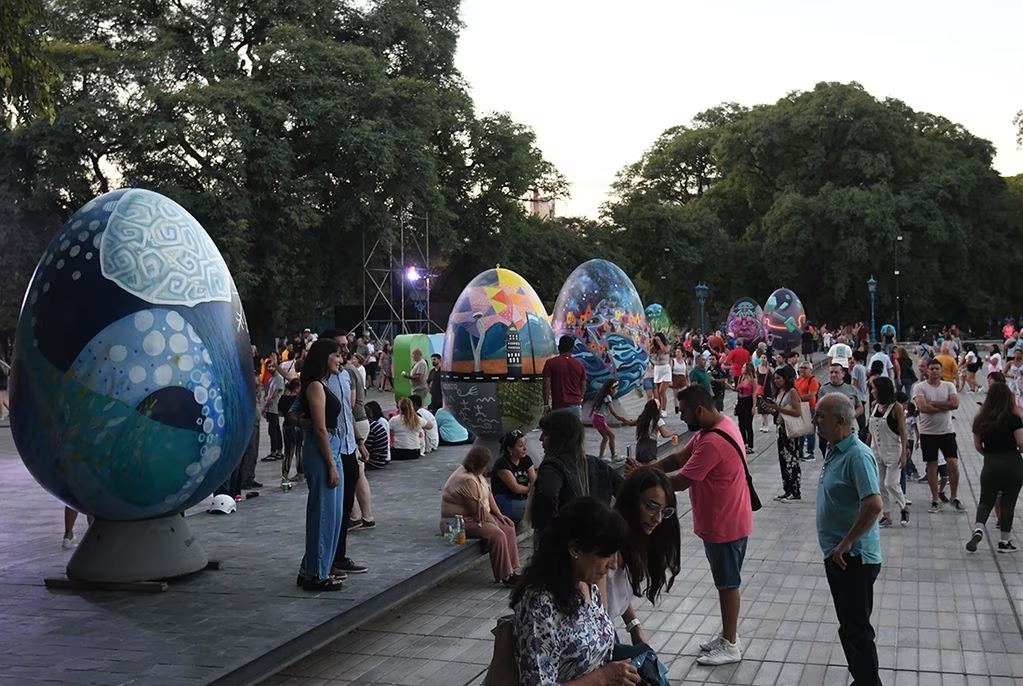
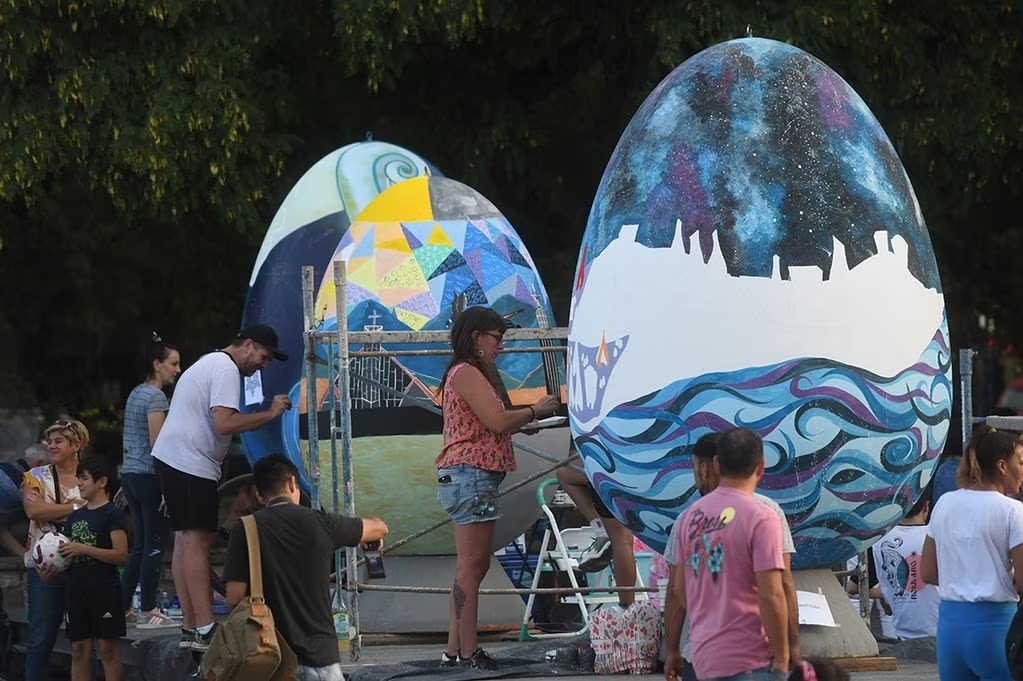
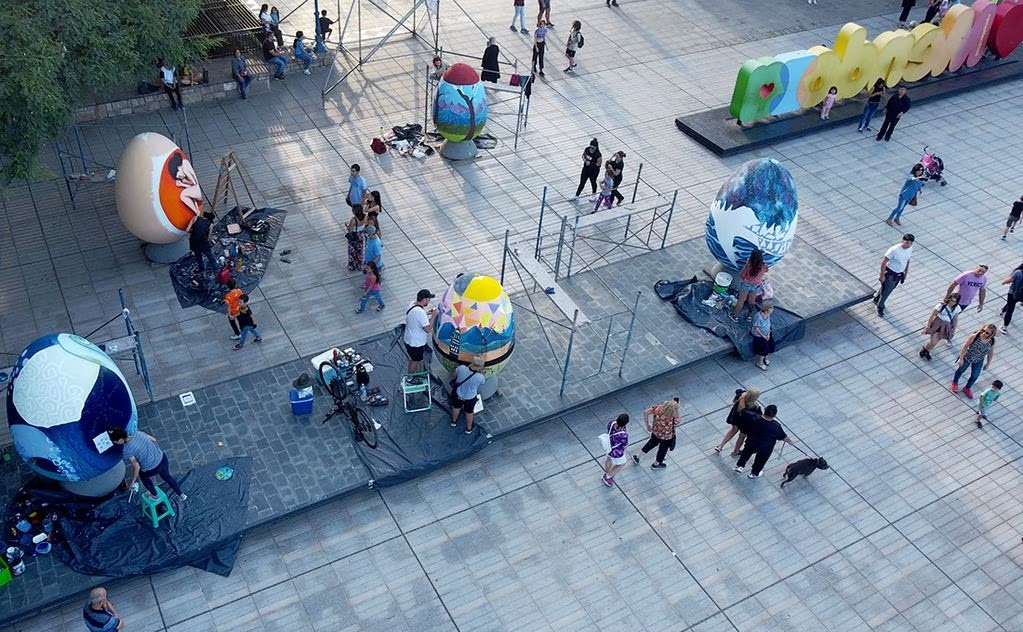
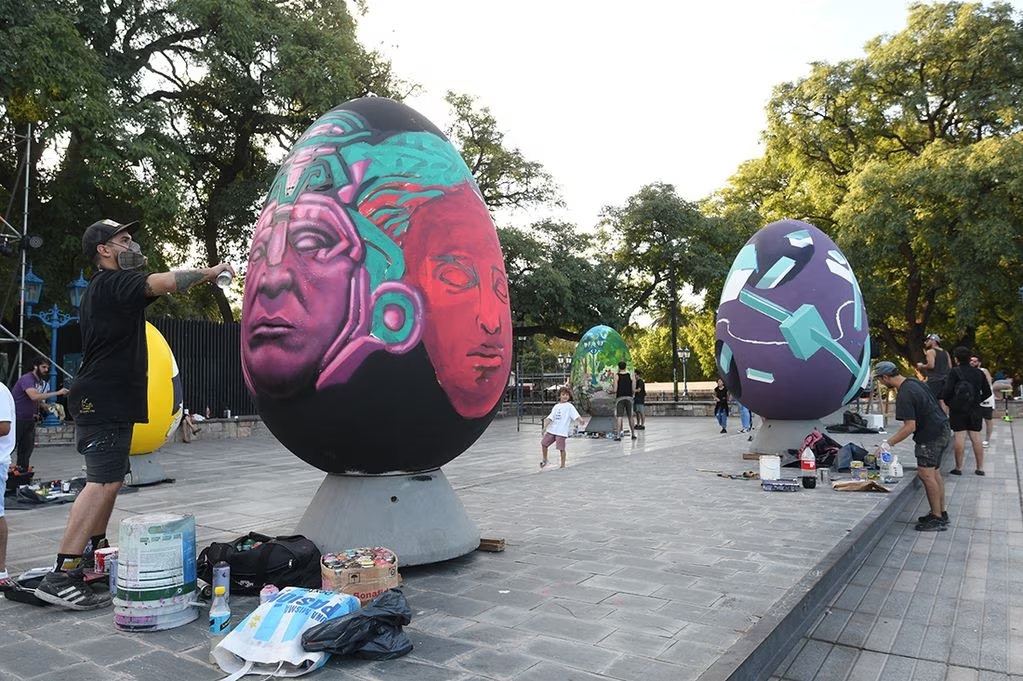
Photos credir: Marcelo Rolland
For more, make sure to check out our dedicated lifestyle section.
Grlić Radman, Žigmanov Advocate Better Status for Croat Minority in Serbia
ZAGREB, 8 March 2022 - Minister of Foreign and European Affairs Gordan Grlić Radman on Tuesday spoke with the leader of the Democratic Alliance of Vojvodina Croats, Tomislav Žigmanov, and the two discussed improving the status of the Croat minority in Serbia, the Foreign and European Affairs Ministry said in a press release.
"Considering that Serbia is still not implementing the provisions of the bilateral agreement on the mutual protection of rights of the Croat minority in Serbia and the Serb minority in Croatia, the talks underscored the importance of continuing to work on improving the status of the Croat minority in Serbia," the press release said.
The two officials talked about the current social and political circumstances in Serbia, with emphasis on the ethnic Croat community and activities by its key institutions.
They underscored that Croats in Serbia still live in an unfavourable social and political climate while Grlić Radman said that Croatia would continue to actively participate in protecting their cultural and identity interests as well as take the necessary steps in that regard, both in bilateral relations but also within the relevant international organisations.
As regards the coming election in Serbia, Grlić Radman and Žigmanov agreed that it was necessary to invest joint political efforts for ethnic Croats to obtain legitimate political representatives in Serbia's political institutions.
Croats The Most Numerous Guests on Hvar This Year
August 6, 2020 – For years, Hvar has been too expensive to be a popular holiday destination for domestic tourists. This year, the lower prices and general accessibility have attracted an increased number of domestic guests on Hvar.
Traditionally, the largest number of tourists on Hvar were from the USA and the UK. According to Petar Razović, director of the Hvar Tourist Board, "the main reason for the increase in domestic guests in Hvar Town is, unfortunately, COVID-19, which affected the sense of security of local guests who may have spent their holidays outside Croatia, as well as the general accessibility of Hvar for domestic guests.''
For the past five years, domestic guests have accounted for 8 percent of the total arrivals. From the beginning of this year to the end of July, their share was as high as 18 percent.
All tourism workers have well estimated that prices are the factor that will attract domestic guests.
Discounts and service customization
However, significant changes in prices and services have made Hvar more accessible to all guests this year, not just locals. In some private accommodation, prices have been reduced by up to 50 percent, while in hotels, the service itself has been increased.
"After several years in Hvar Town, hotels have once again introduced half board possibilities, rooms of a higher category were awarded free of charge (in the sense of free upgrades), and excursions were offered included in the price of the room," explains Razović.
Catering facilities have introduced discounts for domestic guests between 10 and 20 percent.
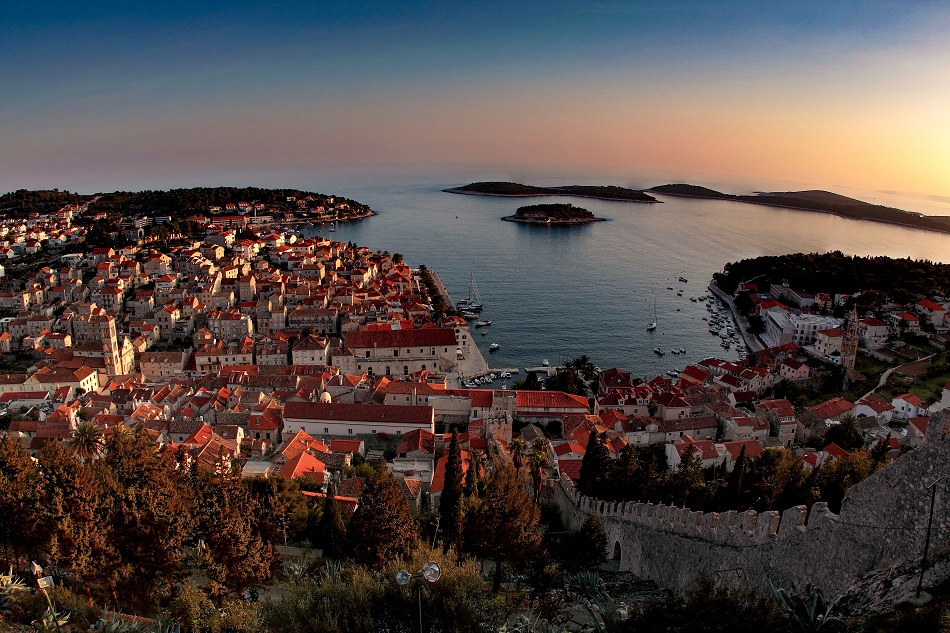
Source: Hvar Tourist Board
In addition, this year, the prices of motorways, catamarans, and ferries haven't changed, which are all essential to arrival on the island of Hvar. However, on the other hand, there is a problem with parking in Hvar Town, because this year most tourists, both domestic and foreign, are coming by car, and not by plane as usual.
Comparisons with previous years
Director Razović compares 2020 with the 60s of the last century when Hvar had a unique marketing strategy all over the world where guests could get various discounts. Free overnight stays were offered for rainy and snowy days because Hvar has always been promoted as the island with the highest number of hours of sunshine in the world.
"If we look at the recent past, today, Hvar Town is recording the same tourist results as in 1996, so it's easy to compare the impact of COVID-19 with the Croatian War of Independence,'' describes Razović.
Plans for the future
The number of domestic guests in the future will mostly depend, of course, on price fluctuations, and the Tourist Board will continue to promote Hvar on the domestic market.
Domestic guests will be invited to mostly visit Hvar in the pre-season and post-season when they can enjoy cultural events (the Za Križen procession, Hvar Theatre Days, the Lavender Festival), sports events (the Hvar Half Marathon), as well as agricultural activities such as organised grape and olive picking.
They also plan to open hotels and private accommodation earlier, which will offer guests additional facilities.
Razović says that he is "convinced that prices will still be at this year's level and that domestic guests will opt for their vacation in places that gravitate to the city of Hvar, namely Milna, Sveta Nedjelja, Jagodna, Bojanić Bad, Velo Grablje, and Brusje. "
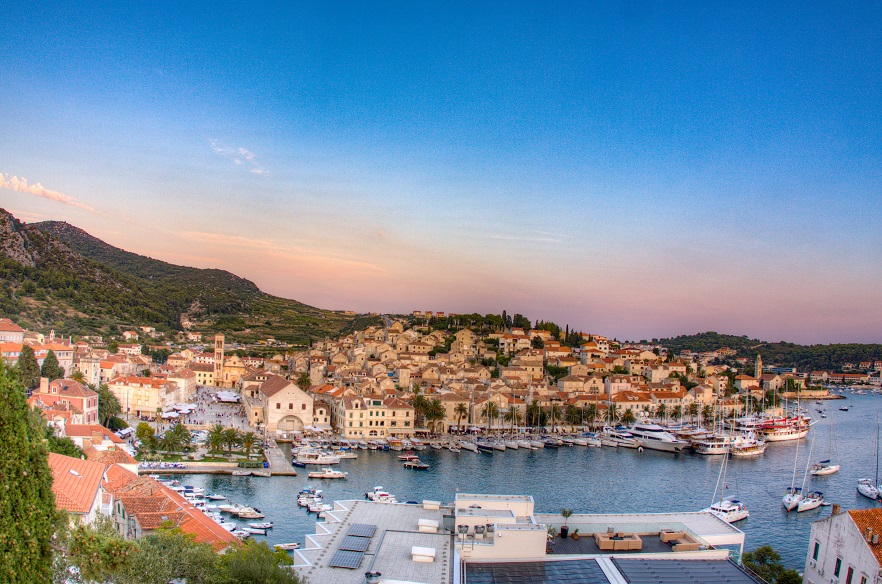
Source: Hvar Tourist Board
Hvar's prices have dropped drastically, local guests decided to take advantage of that and spend their holidays on Hvar, which might not have otherwise been the case. Thus, Hvar has finally become more accessible to domestic guests who want to enjoy a quality and safe holiday in their own country.
For Hvar, the rule has always been that you have to visit it at least once and enjoy all its charms.
For the latest travel info, bookmark our main travel info article, which is updated daily.
Read the Croatian Travel Update in your language - now available in 24 languages!
Where Will Croats Go After the Measures are Eased?
May 10, 2020 - While we were patiently waiting for the measures to be eased, we asked Croats about their plans on the first day with a bit more freedom.
After almost two months of strict measures that limited our freedom of leaving our homes or the county, today there was a decision to eliminate e-passes, except for Brač, where, according to the decision, there is still ban on movement and gathering. Thus, on Brač, the measures from before April 27 are applied. Here is the link about the situation on Brač.
We asked Croats how they are planning to spend the very first day with new, eased measures and gathered 311 responses.
The first statement was, "I'll go to the cafe for coffee," and surprisingly, for a nation who loves enjoying the sun on the terrace while drinking coffee with friends, just 52,2% said yes.
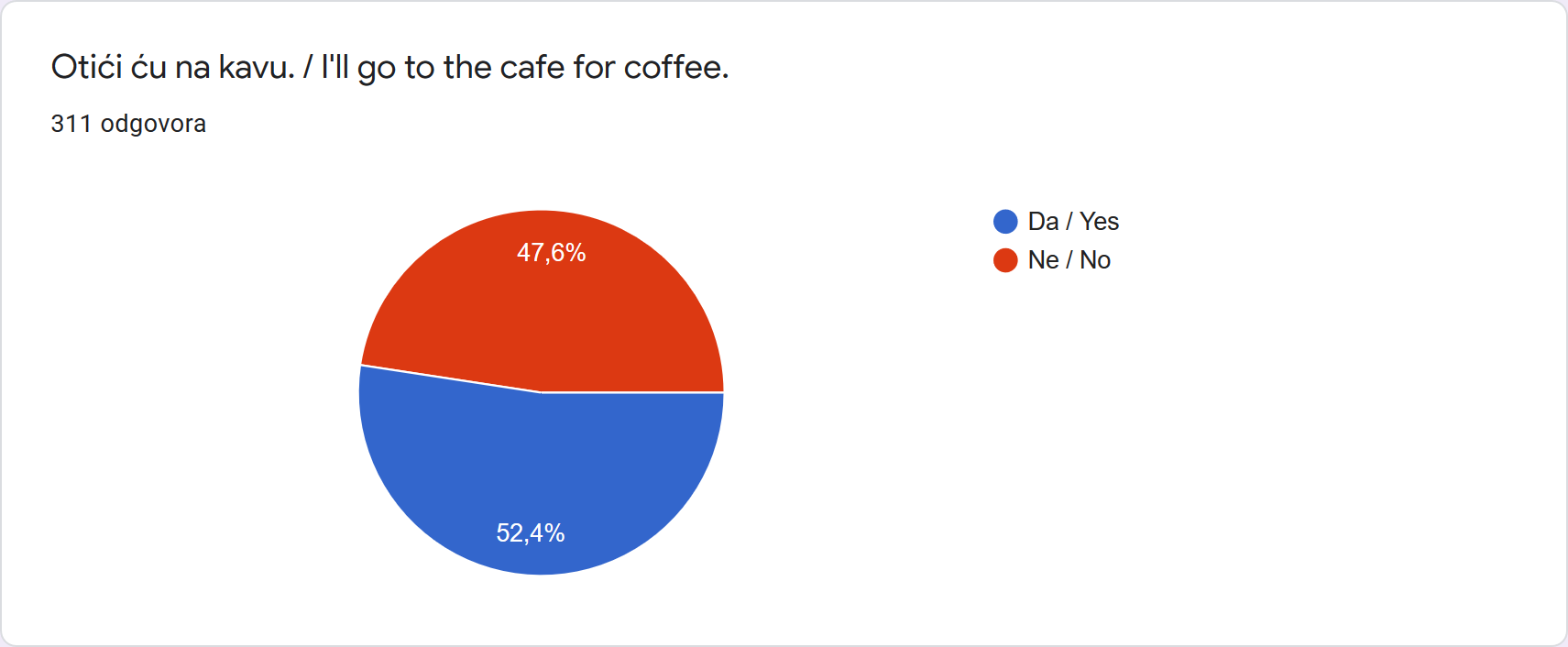
They are even less ready to leave their county, with a total of 55% negative answers.
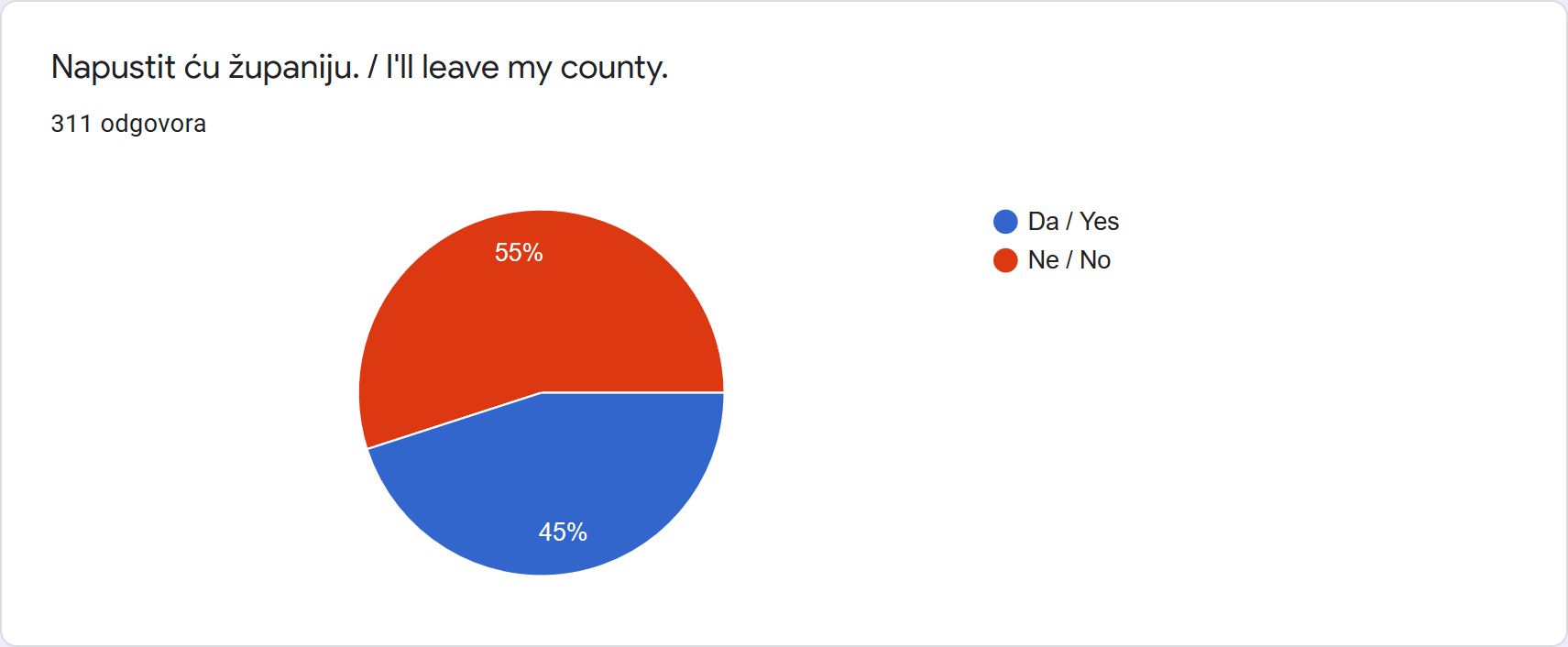
But, when it comes to visiting friends, here, the "yes" answer confidently wins with a total of 71,4%.
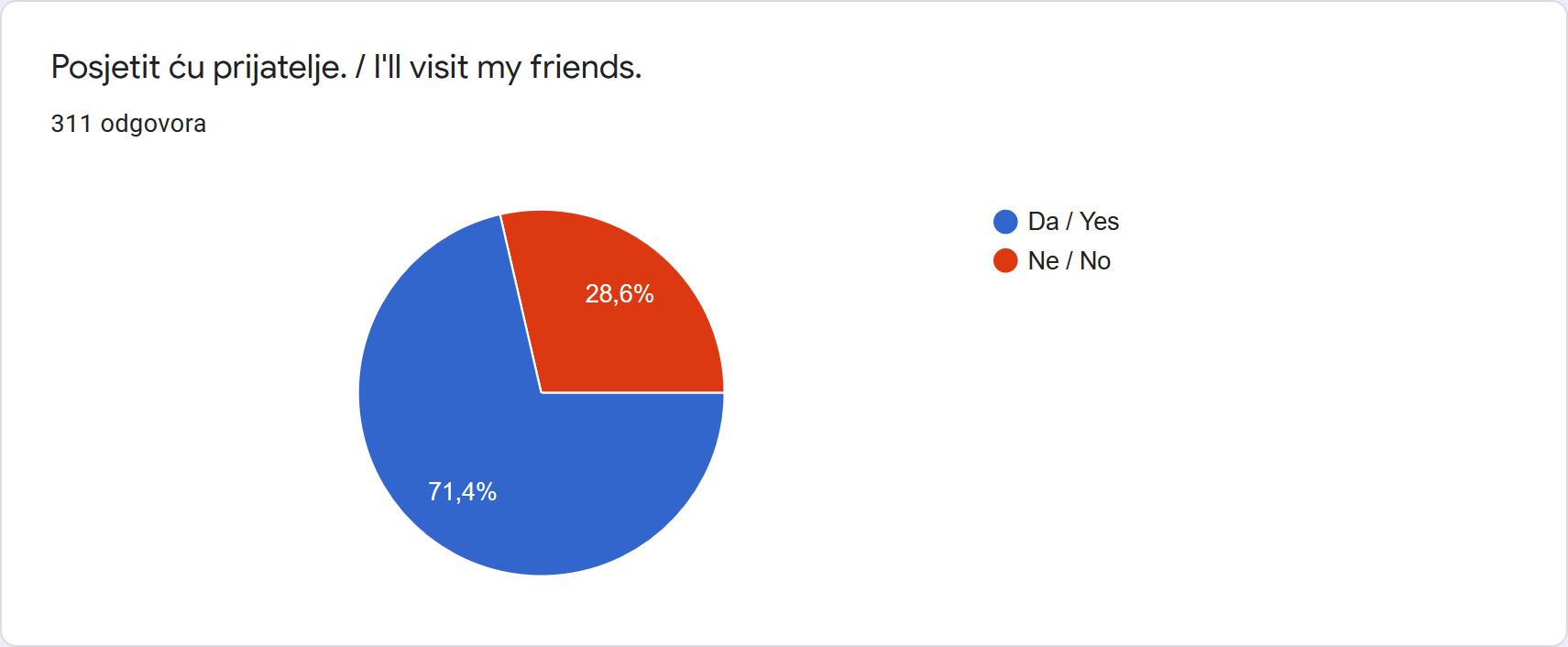
The caution when it comes to shopping is still here - 70,4% of people said they wouldn't go to shopping centers.
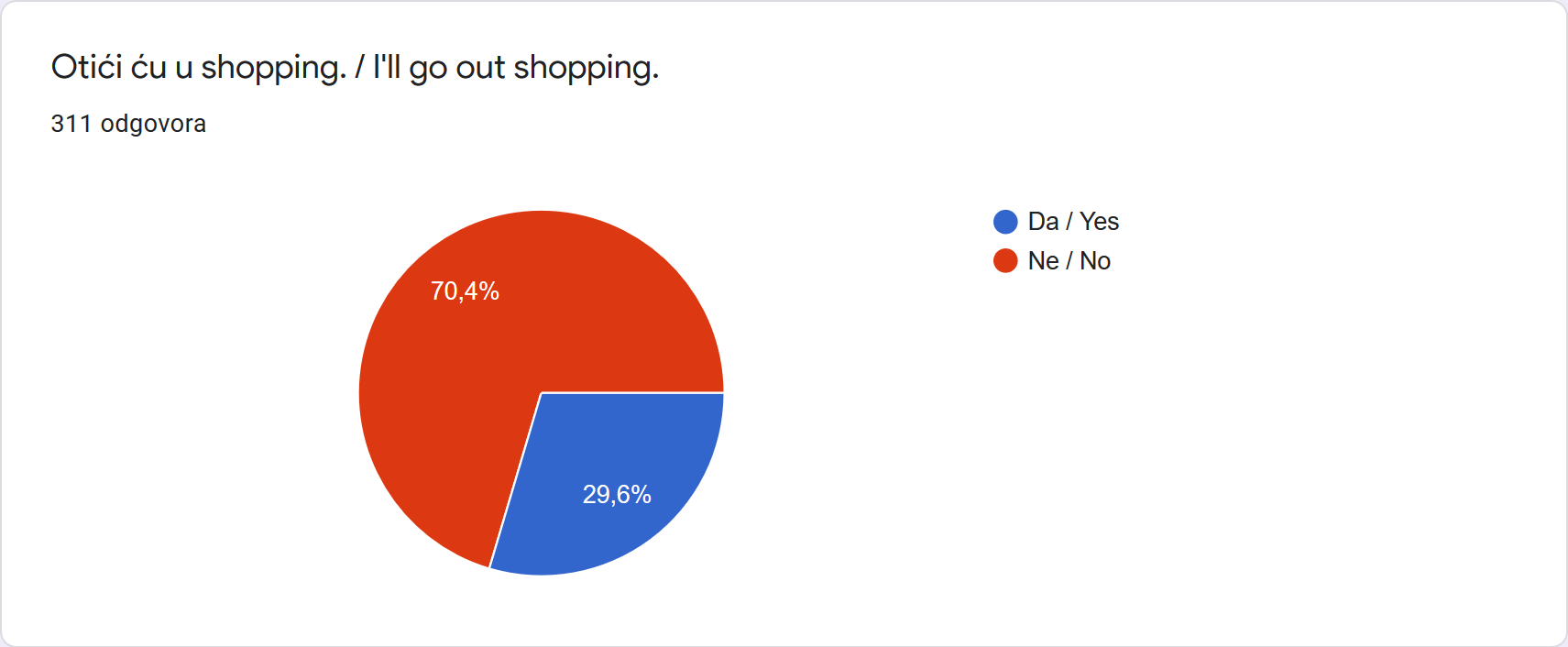
A little less than half of the people answered that they wouldn't stay home, which, after almost two months without that luxury, is understandable.
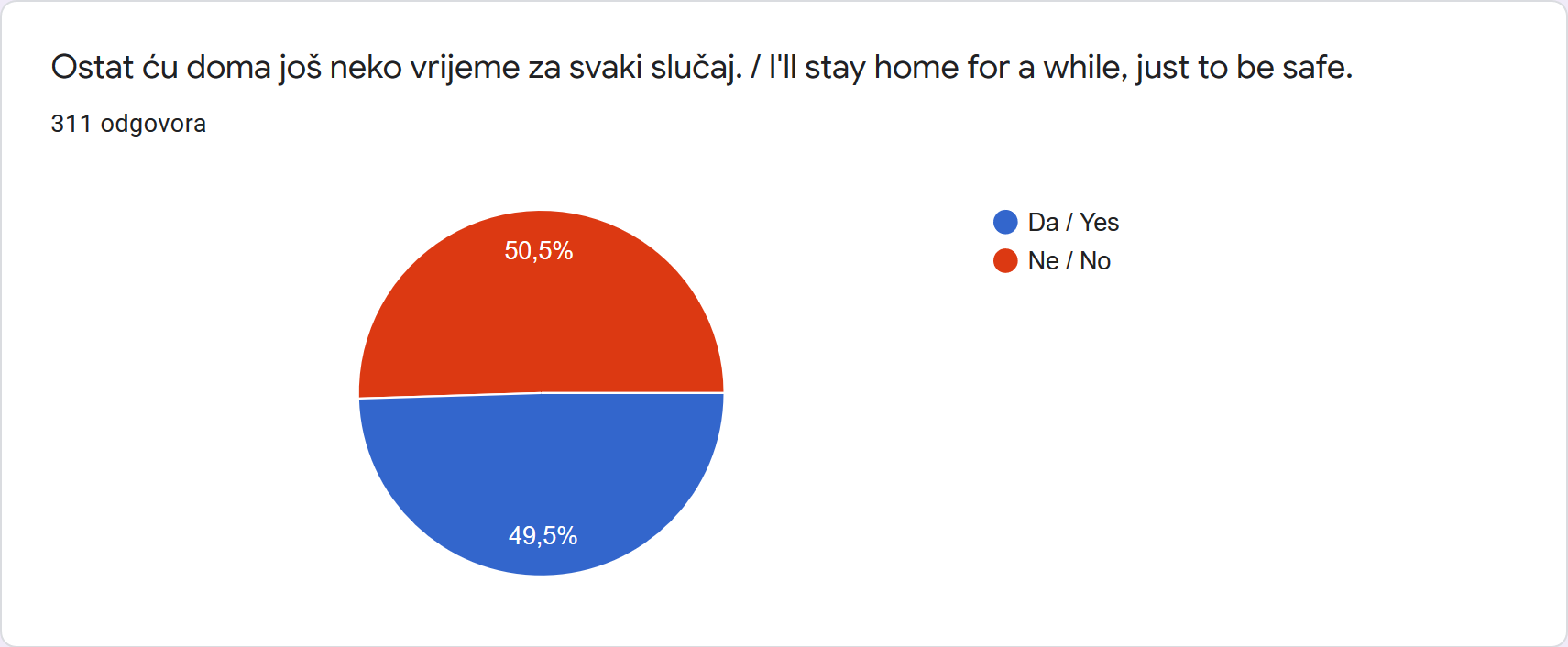
In the last statement, Croats showed responsibility once more - a total of 82,3% of people steal the show.
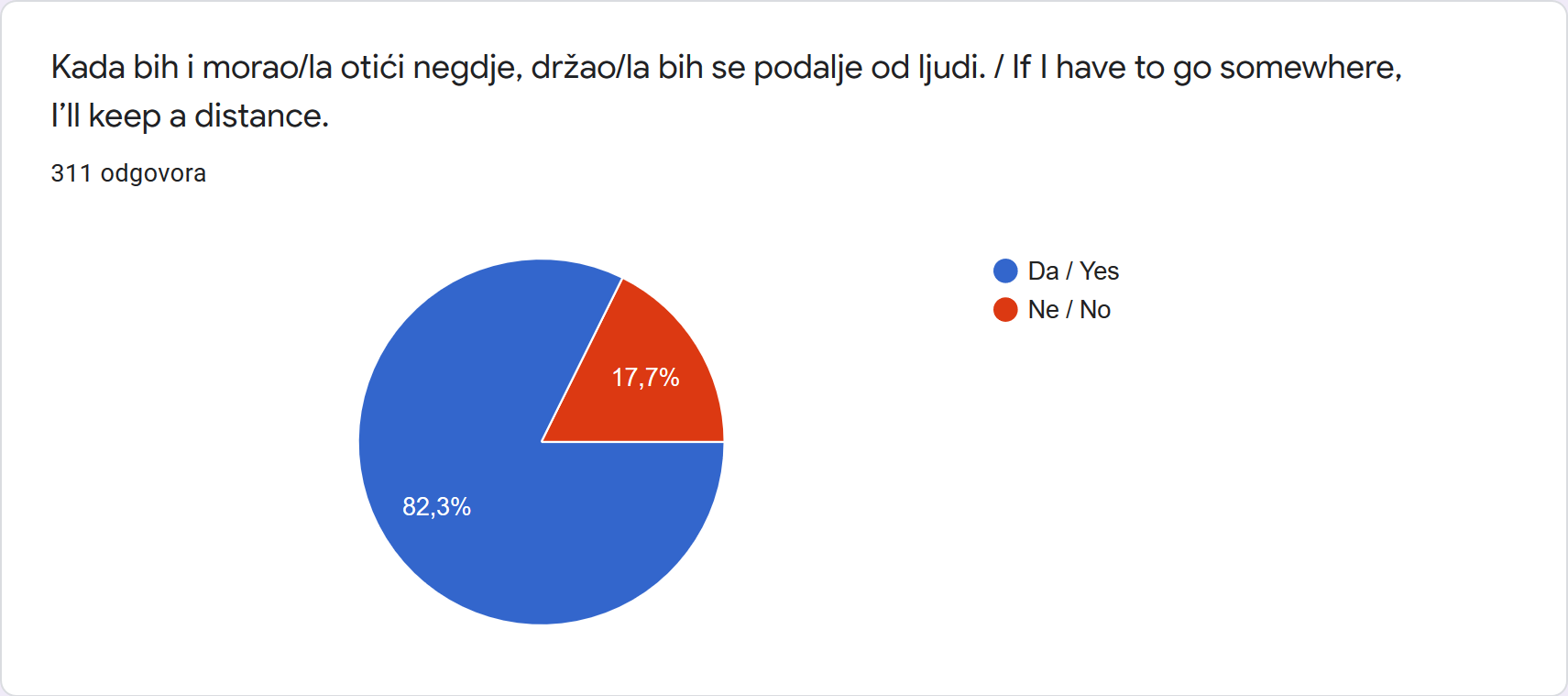
A little reminder for everyone: from tomorrow, gatherings of 40 people will be allowed, and e-passes are eliminated. Still, we are called to act responsibly.
Follow our live updates on the coronavirus crisis in Croatia.
To Work or Not to Work: Almost Half of Croatia Economically Inactive?
As Novac/Sanja Stapic/Slobodna Dalmacija writes on the 27th of March, 2019, why exactly are the powers that be in Croatia constantly talking about importing workers from around the world if they can be found among students and retired people already here? This is a valid question that is increasingly being put forward by Croatian employers, and it could bring results. A new law has put the spring back in the step of many, and riled others, as it allows retirees to be employed for four hours a day, and still retain all of their rights to their retirement and pensions.
It was in this exact manner that Spar Croatia launched an employment program for retired individuals which lasts for four hours, allowing them continued full access to their retirement benefits and offer a flexible employment schedule. Konzum followed the same path not long after, and this giant company is announcing in the media that they're on the lookout for new people, turning to students and also to retired people to whom they're offering part-time jobs, with pleasant and flexible working hours as extra bait.
With regard to the typical pension payout per month, and also given the fact that there are a great many people among the population who haven't yet ''served'' their full working lives and are perfectly healthy and capable of doing so, the average pension stands at 3,665 kuna, so it comes as no real surprise that more than 5,200 retirees are currently working part-time jobs. There will likely be even more joining them as time goes on.
Croatia boasts (alright, maybe that isn't the right word here) a large portion of the populace who don't work, haven't actually registered themselves as unemployed, aren't actually looking for work, and are between the ages of 16 to 64. At the end of September last year, according to a survey taken by the State Bureau of Statistics, an extremely concerning figure of 48.4 percent of Croatia's working-age population was economically inactive. This means that there are more economically inactive people in a normal state of health and who are perfectly capable of working than there are employed persons in Croatia. Of course, those working ''on the black'' or accepting cash in hand jobs, of which there are a great many, are more difficult to account for in this instance.
The survey carried out by the State Bureau of Statistics showed that out of all of the economically inactive persons in the country, 121,000 of those inactive people do want to work, but they aren't actively seeking employment, while 1.57 million don't want to work because of school, their age, illness and various other similar reasons. These other reasons may also include the desire to stay home to bring up their kids, but a large number do earn a living of some sort owing to the so-called grey economy.
For a country like the Republic of Croatia, in which 4.1 million people were registered as living according to the estimates of domestic statistics, 1.7 million inactive people is a very large number of people living their lives almost entirely outside the world of work, at least officially.
Economist Dr. Damir Novotny points out that Croatia currently doesn't have enough of a workforce in any given sector, which in one part is the result of the entirely wrong direction of the country's social policy and in another part, owing to the opening up of the European labour market for Croatian citizens.
''There is clear research on the fact that those who are able to work are excluded from labour market. It's one of the major problems and mistakes of [Croatian] governments over the past 10 to 15 years. We have a problem with the grey economy, we know it's big and many who are formally [registered as] unemployed aren't actually unemployed in reality. Thirdly, but no less significant, is the opening up of the labour market to the part of the working-active population who have a middle to high level of education, who are extremely easily integrated into the European labour market. We have these complex variables in the function of reducing working-active citizens, and on the other hand we don't have enough immigration policies,'' explained Dr. Novotny for Slobodna Dalmacija.
Employers, encouraged by the fact that today retirees can be hired as part-time workers, have decided to try to solve their problems in such a manner. Workers need them, and last year's quota for the import of foreign workers amounted to over 30,000 work permits, and this year that number could be considerably higher, and we already know that the tourism sector, otherwise Croatia's strongest sector, will be missing about 15,000 skilled workers.
The statistics show that the problem will become even worse as time goes on.
Because of the decline in Croatia's overall population and extremely adverse demographic trends, the number of working-age population is continuing to decrease, and back in September last year, there were just 3.5 million working people in the country, which is 110,000 less people than there were back at the beginning of 2010. During that period, the number of economically active people fell by 102,000 people to 1.82 million, the number of those registered as unemployed was reduced by 19,000 to 1.69 million, and so the negative trend continued.
Economists warn that Croatia will need a workforce, it also needs to work hard to activate the inactive population, the long-term unemployed, younger retirees and even people with certain disabilities. Some experts, such as Dr. Danijela Nestić and Ivo Tomić from the Zagreb Institute of Economics, have calculated that Croatia can increase its overall employment levels in only a relatively small manner, even it it managed to employ all the unemployed people and part of the economically inactive people who don't work for family reasons or because they're discouraged in their job searches.
Discouragingly, Croatia is the European ''champion'' with the most retired people who are still of working age, with the most people saying that they're somehow incapable, or too sick to work.
Make sure to follow our dedicated lifestyle and business pages for much more.
Click here for the original article by Sanja Stapic for Slobodna Dalmacija
Could Croats Ever Unite If They Were Not Under Attack?
November 11, 2018 - Croats in adversity are the most united and determined nation on the planet? So why can't they come together for simple things when nobody is attacking them?
Having been fortunate to have visited almost 100 countries and lived in ten, I have come to the realisation that nobody beats the Croats when it comes to coming together in times of adversity, and when there is a celebration of victory, Croats know how to party like no other nation on Earth.
The scenes in Zagreb with some 550,000 people on the streets waiting to welcome home their heroes were beamed all over the globe, without doubt the most positive image of the country ever projected onto the international stage. As a longtime foreign resident of Croatia, it was a pleasure to watch.
The Croatian team won millions of hearts, as Modric, Rakitic and co all came together with a series of tenacious performances, and the Croats from the tiny country which dared to dream came together to produce one of the greatest World Cup stories of all time.
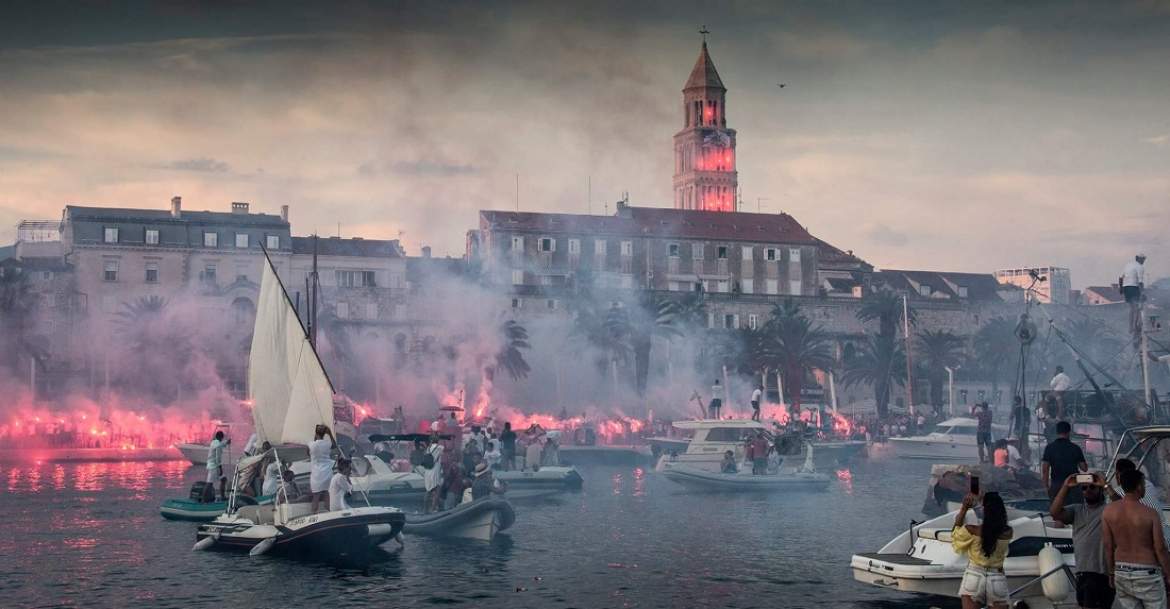
Croats were united once more just weeks later, this time in grief, as the most beloved voice in the country passed away. The maritime funeral cortege from Split to Vela Luka for Oliver Dragojevic was another exceptional outpouring of unity and emotion in adversity - this time the loss of their most beloved singer. One of the most read TCN articles ever was written on the back of it - In Life and in Death, Croatia are World Champions at Celebration.
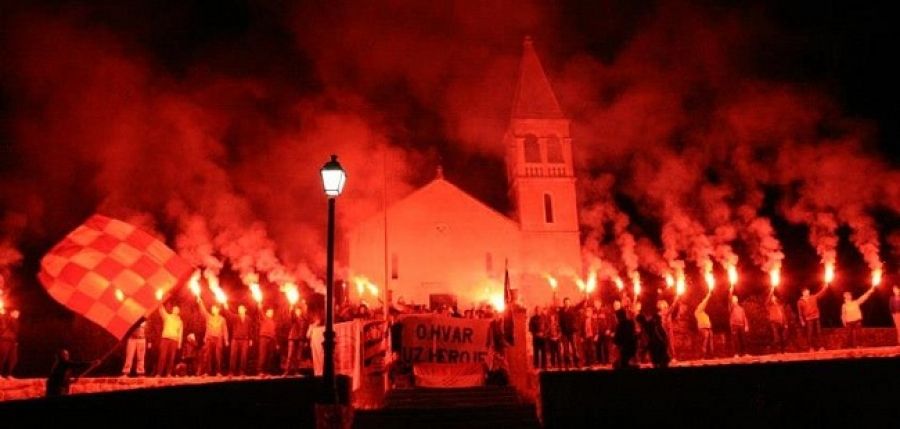
Support for their alleged war criminals in the Hague brought Croats together, and the atmosphere in the country when Ante Gotovina was freed back in 2012 was electric, with church bells ringing out all over the country, as we reported for Google News at the time. This was Jelsa on the night of Gotovina's arrival in the photo above. I often wonder how Croatia would be today if General Gotovina had gone into politics on acquittal. Could he have changed the system, rooted out the corruption and given the bright future for which so many fought and gave their lives?
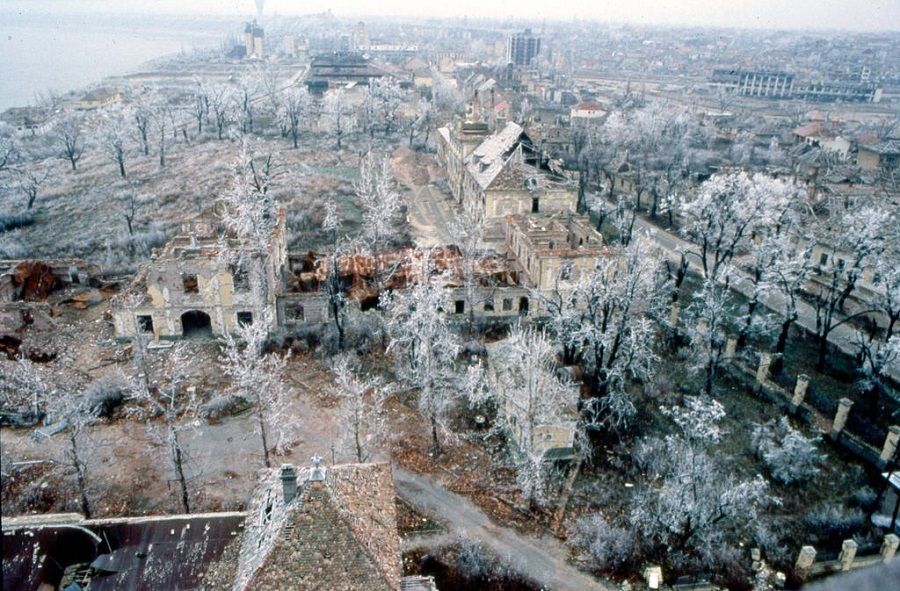
And of course, the great unity of Croats in recent times, during the Homeland War, where they came together under huge adversity and emerged with freedom and an independent country.
An incredible nation, then, these Croats - and one to genuinely admire.
But what happens when nobody is attacking them?
A slightly different story...
One of my favourite statistics when I had a real estate business in Croatia 15 years ago was that in a population of 4.5 million (that was the population just 15 years ago...), there were apparently 3.5 million lawsuits in the country, of which about 90% were property related. There is no property dispute quite like a Croatian property dispute, I have come to learn.
One of the curious realities of life here is that while Croats will fight to the last breath to defend the country or on the football pitch, when it comes to protesting injustice or trying to enact change, there is apathy on a scale I have not seen in any of the other countries I have lived. It is a subject I covered in a recent editorial, Instead of Being Counted as Sheep, Will Croatians Ever Stand Up and Be Counted?
Croats love to complain over a coffee in a cafe, celebrating Croatian tragedies. One of my most interesting experiences on Hvar was listening to locals complaining about one issue, which I agreed with them on. I then wrote about the issue on Total Hvar in English (and it led to change), and far from being thanked, the exact opposite happened - Croatia was being attacked by a foreigner, and rather than thanking me, several locals were united against the foreigner who dared to criticise an aspect of Croatia that they themselves were criticising. As Croats.
Ah, Croatia.
(How Malaysia does it - coming together for the greater health tourism industry good)
The thing that inspired this post was born in Malaysia. At the recent Crikvenica International Healthcare Tourism conference, as well as a specialist seminary on branding Croatia as a medical tourism destination this week in Zagreb with Ilan Geva, Malaysia was introduced as a country with best practices in developing medical tourism.
"We brought all the stakeholders together," explained Malaysia Healthcare Travel Council CEO Sherine Azli. "It was very hard work, and 90% of my job is managing the stakeholders,but by working hard from dedicated medical tourism arrivals hall at our airports, right through the process until the patient departs, all agencies and goverhment departments are working to the goal of giving the best medical tourism experience to the patient. All efforts are coordinated by the Malaysian Healthcare Travel Council, which is a dedicated unit in the Ministry of Health."
If only Croatia could unite in such a way, on so many levels, to work for the common good - what a country we could have. And the issue is not simply one of dealing with state institutions or health tourism - take a look at how Macedonia's winemakers are performing on the international stage versus Croatia.



